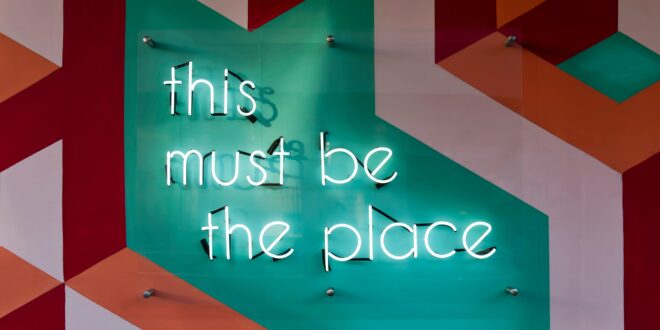If you do not know exactly what your dream job is yet, you have to read all the way through. We are going to dive into how to figure out your calling, the three most important things that lead to career satisfaction and then 7 step Love Your Career Formula that has helped hundreds of women determine what they want to be when they grow up and then get that job offer in their dream job.
The 3 Most Important Things That Lead to Career Satisfaction
How often have you taken the time to think about what really interests you at work, what has perhaps shaped the career choices you have made so far? Think about those times when you get really absorbed in something, the time flies by doesn’t it? Why is this important? Because it’s all about bringing more of yourself to work. When you really enjoy what you do, you are more likely to perform well and be satisfied with your career.
What comes to your mind when you think of career satisfaction?
People might define career satisfaction by working with people who empower you and having a greater cause. Also, career satisfaction could be solving problems and filling a gap or reward and recognition. Some examples could be adding value or being interested in your work or working with great people.
All this to say that career satisfaction means different things to different people. Over several decades, countless studies have been conducted to discover what makes people satisfied at work. Research has found that interests, motivations, and skills are the 3 factors that lead to career satisfaction.
1. Interests
Career interests are the most important of the 3 factors because interests are a part of our core and are stable and they stay with you through your lifetime. The definition of interest is something that is deeply held that you absolutely connect with – you want to learn more about topics. An example of this is if you really love analysis or new technology. These stay with you throughout your lifetime.
2. Motivations
Then we have motivators, which can also sometimes be called values. These are the rewards each of us needs. Some examples of motivators are flexibility, lifestyle, and intellectual challenge. Motivators are really important to be aware of to make sure you are aligned in a job correctly and it is also important to remember that your motivators can change based on your current life situation.
3. Abilities
Abilities are your skills – this is what we focus more on in the professional world. But this is just one part – skills are like muscles, you build them up if you must also have an interest in them to want to be satisfied in your career. Some people are drawn to career paths because they have the ability and like the rewards, even though they aren’t interested. After a short period of success, they lose interest and either quit or just work less productively.
The 7-Step Love Your Career Formula
You may know someone (or you might be that someone) who just applies online to any old job and not jobs that they are passionate about. This is a great way to get stuck in another job that you hate. You will be unhappy if you just move into another job that is just like the one you hate now. It’s a repetitive cycle and you will always hate your job unless you do something about it.
Instead, you need to have a plan and a goal.
You need to find what that perfect job is for you BEFORE you start looking at future career opportunities. And that is what networking is all about. You can ask all the questions you want to someone already in that career field and determine if something is right for you BEFORE you start! You have to narrow it down from applying to any old job and instead have a very specific type of work that you would like to do in order to have any success trying to find the perfect career for you.
So how do you evaluate what type of job fits you best? There are 7 Secrets that I am going to share with you.
Step 1: Understand You
There are two things you need to look at to understand yourself better. It is important to think about your current career situation and identify all of the things that you love and hate so you can make sure you figure out what you truly want in your next job. Also, you should identify your own unique personality because not all personalities fit every career path
Step 2: Nail Your Mission
Many people have a really tough time putting their finger on it. Some people think that their purpose in life is to get a good education so that they can get a nice house and great car. If this is what you think, you have a lot more thinking to do. Each of us has a unique purpose that cannot be replaced by another person. Unfortunately, the culture at many companies makes us believe that we can be replaced if we were ever to leave our work. Your purpose is why you get out of bed in the morning and it includes figuring out your values and mission statement as well.
Step 3: Self-Reflection
This step is all about identifying not only the skills that you are good at but also the skills that you enjoy. It’s about looking at your motivations and interests. It’s also about imagining your ideal workday and ideal work environment. This step also identifies if you have an entrepreneurial personality and if starting a business could be in your future.
Step 4: Target Your Job Search
During this step, you brainstorm potential career targets and narrow down the best careers for you based on your prior experiences and your self-reflection from steps 1-3.
Step 5: Uncover Any Issues
In this step, you uncover issues that could potentially come up with your career targets. Are industries you want to go into doing well in our current economy? What is the forecast for your ideal career target for the future? Are they hiring?
Step 6: Create Your Ideal Career Outline and Brand
In this step, you create your ideal career outline which is a one-page document that consolidates all of your responses from steps 1-5. This way you have it all on one page and can use it when you get a job offer to ensure you accept a job that is the right career fit for you. This step is also about creating your online personal branding strategy and getting your social media accounts all set up for job search success.
Step 7: Kick it Into High Gear With Networking
This step is all about establishing your goals and then creating a networking action plan that matches those goals. Recommended is strategic and efficient networking so your network with the “right” people who have the opportunities that you want. This step is all about informational interviews and kicking it into high gear where great things start happening! But you can’t just start here, you have to start at step 1. Sorry!
Recommendation to most job searchers is always to start at the beginning and learn more about what the best path for you is before jumping into the job search because you don’t want to repeat a cycle of jumping into jobs that don’t fit you best.
This Content has originally written by Anna Runyan and published on July 18, 2021. No Copyright/IPR breach is intended.
Photo by Tim Mossholder on Unsplash
 Shadesofpink.in A Women's World By Women
Shadesofpink.in A Women's World By Women




